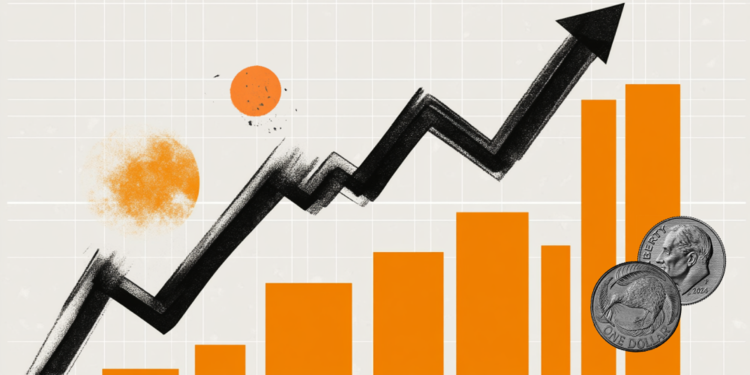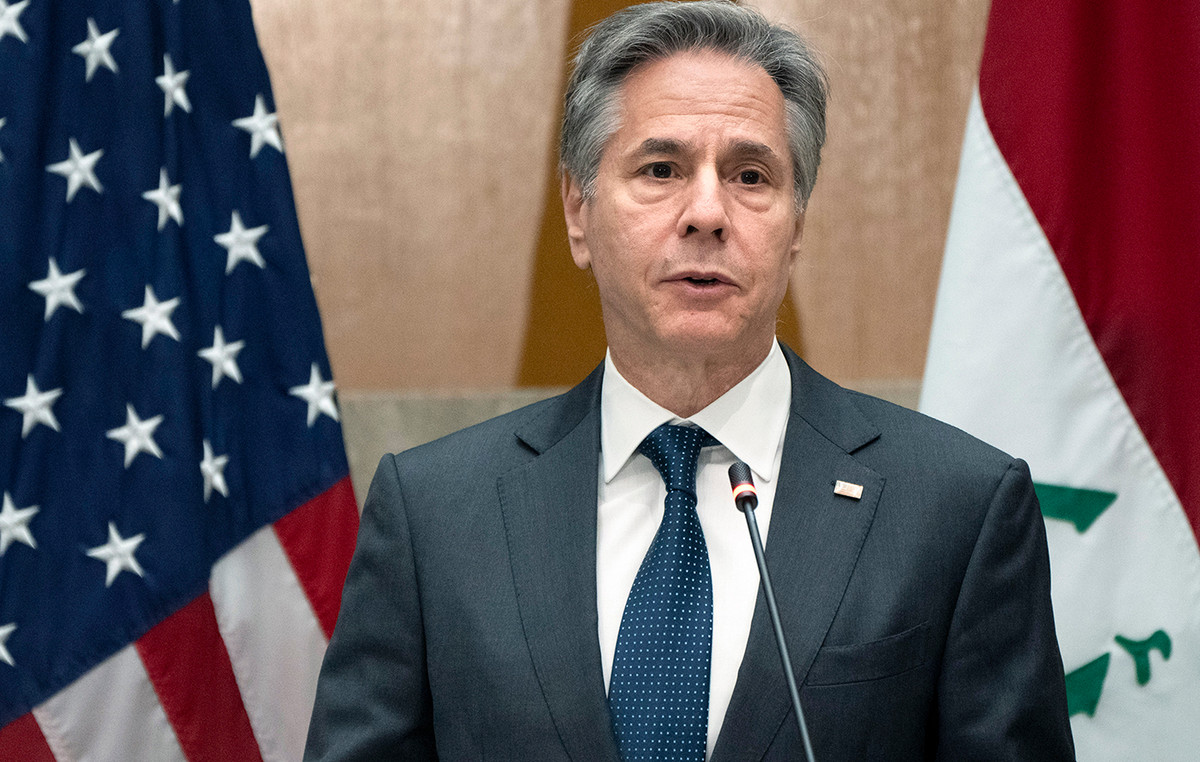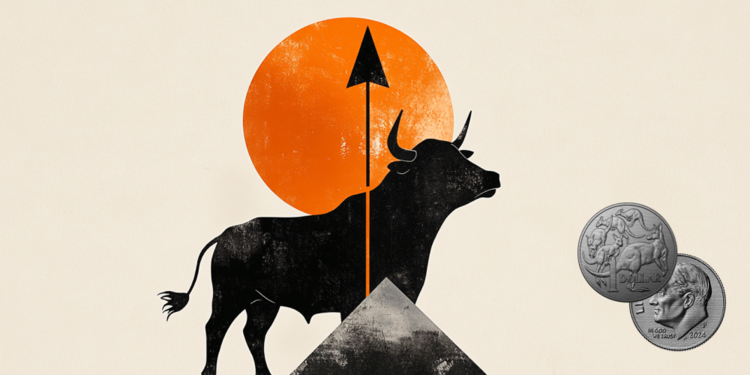Scientists have warned for decades that warming needs to stay below 1.5°C above pre-industrial levels.
Monday’s report by the United Nations Intergovernmental Panel on Climate Change (IPCC) showed that if this threshold is breached, some changes will be irreversible for hundreds – if not thousands – of years. And some changes could be permanent, even if the planet cools down again.
The world is already 1.1ºC warmer than before industrialization, according to the IPCC estimate, considered conservative. We are now rapidly heading towards 1.5ºC.
With each extreme event, ecosystems are being pushed further towards so-called tipping points beyond which irreversible changes can occur, according to the report.
With a warming of 2ºC, for example, up to 18% of all terrestrial species will be at high risk of extinction, according to the report. At 4ºC, 50% of the species are threatened.
“There are already a lot of challenges with 1.5ºC for several systems that we know about,” said Hans-Otto Pörtner, co-chair of the report and scientist at the Helmholtz Center at the Alfred Wegener Institute for Polar and Marine Research.
“Clearly for coral reefs, we must say that in many places, they are already beyond tipping points. They are in decline.”
Highly vulnerable ecosystems in the Arctic, in the mountains and on the coasts are most at risk from these changes, say the authors. The ice sheet and the melting of glaciers will cause an accelerated rise in sea level, irreversible for centuries.
Forests, peat bogs and permafrost – places where greenhouse gases are naturally stored – are at risk of being pushed into a situation where they are emitting these gases into the atmosphere, causing even more warming.
We’re running out of ways to adapt
“Adaptation” is finding ways to live with change – like erecting walls to prevent sea level rise or implementing new building codes to ensure homes can withstand more extreme weather conditions.
Scientists note that some of our adaptations have mitigated the impact of the climate crisis so far, but are not adequate in the long term.
Our adaptation options will become even more limited at 1.5ºC of heating.
And while the natural world has adapted to climate change over millions of years, the pace of human-caused global warming is pushing many of the planet’s most critical systems — such as rainforests, coral reefs and the Arctic — to the brink. cliff.
More extreme weather is not just affecting humans, it is causing the mass death of plants and animals.
Population growth and development, which have not been carried out with long-term adaptation in mind, are also drawing people into harm’s way.
Some 3.6 billion people live in places already highly vulnerable to climate hazards, some of which will rise beyond adaptive capacity once the planet hits the 1.5°C mark.
Many of the world’s resources, particularly international finance, are devoted to reducing greenhouse gas emissions, which is known as mitigation.
At the COP26 climate talks in Glasgow, Scotland, last year, developing countries complained that the rich world was not helping to adequately finance adaptation in their countries.
“We’ve seen that the vast majority of climate funding goes to mitigation rather than adaptation,” said Adelle Thomas, author of the report and a climate scientist at the University of the Bahamas.
“So while adaptation is taking place, there’s not enough funding and it’s not a high priority, which is driving these limits.”
Up to 3 billion people will experience “chronic water shortages”
About half of the world’s population suffers from severe water shortages each year, in part due to climate-related factors, the report showed.
Water will become even more scarce at higher global temperatures.
With 2°C of warming — which scientists predict the planet will reach by mid-century — up to three billion people worldwide will experience “chronic water shortages,” according to the report. This increases to four billion people at 4°C.
Water scarcity will put enormous pressure on food production and add to the world’s already dire food security challenges.
A water crisis is already brewing in the western United States. The multi-year drought drained the reservoirs and caused unprecedented water shortages for the region.
Most of the Middle East is experiencing high levels of water stress, which are expected to worsen as the Earth warms, raising questions about how long these parts of the region will remain habitable.
Vast areas of Africa have also struggled in recent years with prolonged drought.
The report focuses on the interconnection between Earth’s ecosystems and humans, including how the climate crisis is altering water resources.
“What we really wanted to show is that ecosystems and all sectors of human society and human well-being are fundamentally dependent on water,” Tabea Lissner, a scientist at Climate Analytics and author of the report, told CNN.
“And it’s not just the water resource itself that plays an important role in water security, but also in what form and in what quality we can access it, and really showing how many different ways climate change really affects humans and ecosystems. through multiple channels”.
The least responsible people are the most affected
Countries that emit fewer planet-warming gases, particularly those in the Global South and island territories, tend to be disproportionately harmed by climate risks, the report showed.
“We live in an unequal world,” Eric Chu, author of the report and a scientist at the University of California, told CNN.
“Losses are unevenly distributed across communities, especially those communities that have historically been disadvantaged in decision-making, and now we are seeing some of that inequality manifest itself in the choices we make to adapt.”
Camille Parmesan, an ecologist at the CNRS Ecological Station and author of the report, said that as climate change worsens, more indigenous people will lose the land, water and biodiversity they depend on.
“There is growing evidence that many indigenous communities that are much more dependent on natural systems for their food and livelihoods are not only the most exposed because these natural systems are being heavily impacted, but they are the most vulnerable because they are often there. in areas with high poverty or poor access to health care,” Parmesan said.
As the climate crisis progresses, more people will be forced to relocate, adding stress and vulnerability to other regions.
“When the Earth does not become arable, the livelihoods dependency that communities have on agriculture and food production, not only will income be lost, but food security will be lost,” said Vivek Shandas, professor of climate adaptation. and urban policy at Portland State University, who was not involved with the report.
“That ability to survive every day is lost. As humans, throughout history, we have moved from less livable places to more accessible and livable places.”
Source: CNN Brasil
I’m James Harper, a highly experienced and accomplished news writer for World Stock Market. I have been writing in the Politics section of the website for over five years, providing readers with up-to-date and insightful information about current events in politics. My work is widely read and respected by many industry professionals as well as laymen.







